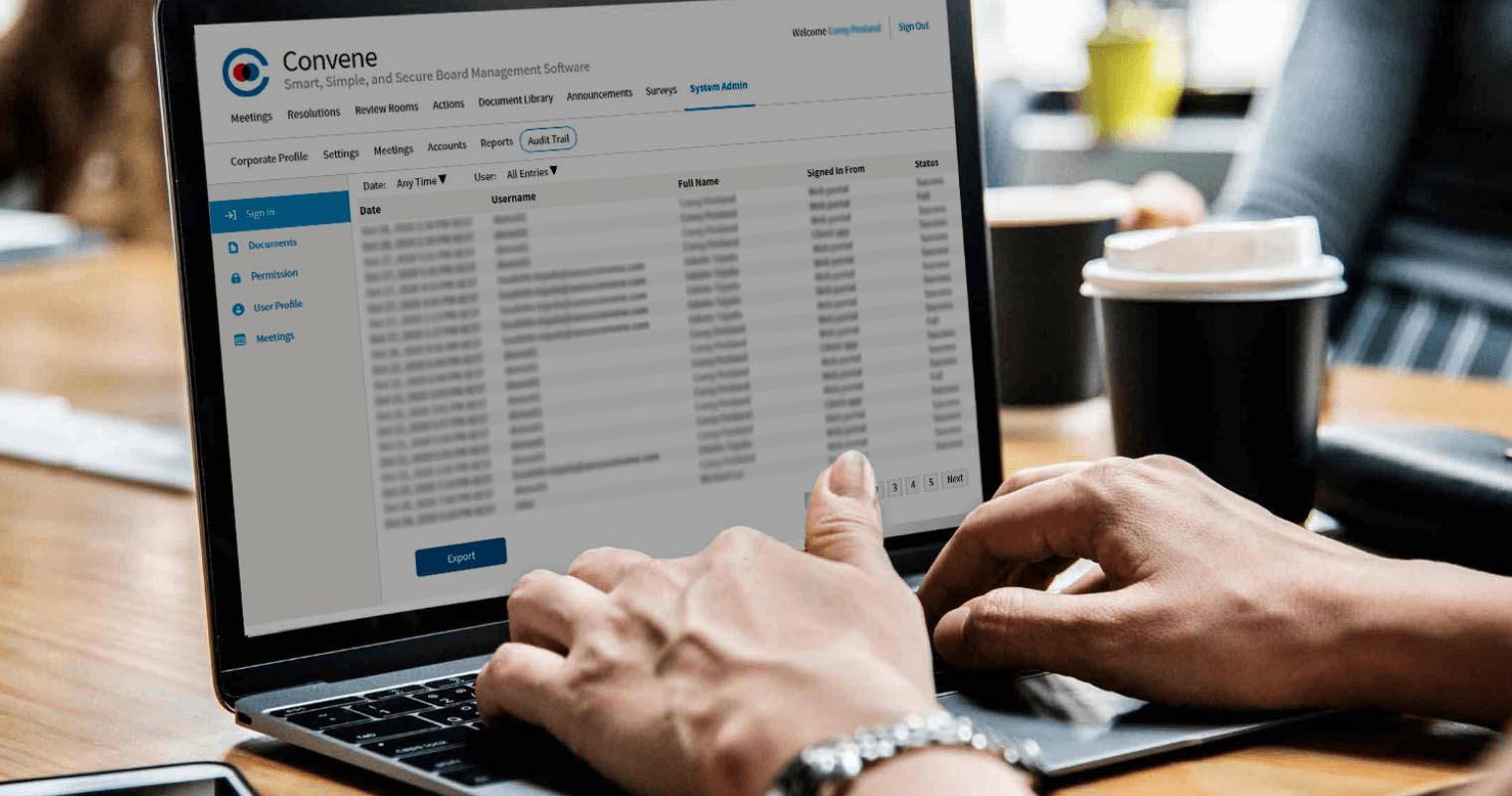Different areas in the business have to keep a watchful eye on their respective transactions, processes, and documents, as these are crucial to the business performance. However, keeping track of important activities is one challenge most departments in the business share. Having a complete record where all actions are logged can help the business with auditing, making sure that there is no room for fraud and other unnecessary activities.
What is an audit trail?
An audit trail is a complete documentation of all activity records. It keeps track of actions and events happening within the business — from operations and procedures to any form of transaction — in an organized and chronological manner.

Elements of an audit trail
The audit trail comprises significant data linked to the activity or transaction, such as the person who did the action, other information associated with the user, and timestamps. This makes sure that every incident is traceable in the event of investigation or scrutinization by auditors.
The modernization of technology allowed auditing to be automated, making the process efficient. Physical evidence and documentation of transactions can now be found and recorded electronically. This eliminates the need for someone to take responsibility for the cumbersome and manual process of recording every activity happening.
Who uses an audit trail?
You may find audit trails somewhat similar to paper trails that are commonly used in the accounting and finance sectors. But nowadays, other business sectors find audit trails useful in their day-to-day operations. Audit trails are now being used in sectors such as manufacturing, healthcare, IT, retail, and many more.
In the healthcare sector, data protection laws recognize patient records as sensitive files, and thus should be kept confidential. An audit trail helps in revealing who, when, and what is the reason for accessing patient information. Meanwhile, in the retail sector, the audit trail helps track sales records and supply chain transactions.
At an organizational level, personas who manage the electronic audit trails usually work in the IT department. Furthermore, common users of audit trails are business leaders, managers, secretaries, administration staff, legal staff, accountants, and employees — basically, anyone who is involved in transactions and accessing various corporate files.
What is the purpose of audit trails?
The purpose of an audit trail is to have a chronological record of events to track the order of actions and activities in the business. It is used for security measures as it is beneficial in tracing any internal irregularities and suspicious activities happening within the business. Any fraudulent activity can be traced back to when it happened and who the person responsible is. Additionally, audit trails can enable the identification of data breaches from outside the organization.
The connection between audit trails and corporate governance
Board management software allows for the effective management of the board’s workflow and processes. It is a collaboration tool that directors can use to promote active collaboration, accountability, and transparency through its features and functions. The board management software is equipped with automated audit trails that ensure every action is accounted for.
Transparency
Audit trails are critical to corporate governance because it ensures that all the actions happening internally in the business can be checked at any time. The board should be able to provide complete and accurate information relating to their activities to the stakeholders of the business with audit trails. With an audit trail, each process and transaction can be verifiable.
Likewise, the audit trail can help in recording who has accessed sensitive board documents. Sometimes discrepancies arise about a certain board document because the information being presented does not add up. By utilizing the board management software’s audit trail, the stakeholders and auditors can easily track and confirm if it is tampered with or manipulated to show better business performance.
Accountability
Accountability gives directors ownership over their actions, making them understand the weight of their responsibilities. As a result, they’re more proactive in making sure that their tasks are properly executed. Accountability incentivizes directors to improve their performance and strive toward success.
Board management software is an essential tool that businesses can use to hold leaders accountable for their actions. Its audit trail has an automated user logs feature that holds individual directors accountable for any actions they do to board documents. This feature helps track user activities and generate usage reports whenever necessary. Audit trails help in monitoring each of the director’s deliverables and activities, thus promoting a culture of transparency and accountability in your business.
Security
Having a reliable record-keeping system for activities adds another layer of security to your business operations. It preserves the integrity of your business by protecting sensitive board documents from misuse or unauthorized access. Furthermore, a detailed record of who accessed what and when can make the investigations easier, efficient, and accurate.
Using the audit trails of board management software is handy in alerting and discovering intrusions or other forms of suspicious and malicious behavior within your system. Knowing that all actions are being tracked discourages your stakeholders and members to commit any kind of malicious activities. This minimizes the risk of cybersecurity threats such as breaches, data loss, and fraud happening to your business.
Compliance
Audit trails also keep businesses in compliance with regulations. Public companies are mandated by law to be audited at least once a year by third-party firms. Hence, businesses should have active audit trails for all their business activities. Audit trails will make it clear to the regulating authorities and the public that your business works as expected in preserving its integrity by upholding verified and accurate information.
One challenge faced by businesses is the time and resources needed to maintain a comprehensive and compliant audit trail. It is tedious to keep track of activity logs as it increases in size. Having an automated solution that can store detailed logs of actions can save you time and resources when preparing for audits. A board management software ensures that relevant data is readily and quickly accessed upon request of the regulating authorities.
Enhancing your corporate governance through a board management software

Audit trails have evolved from a tracking tool for accountants to a vital governance tool that any industry can use. It is now a norm for every business to track activities, ensuring that irregularities are prevented and business performance is improved.
Cultivate good governance by having an up-to-date and accurate record-keeping system. Convene in Teams (CiT) is a board portal in MS Teams that is reliable in organizing historical activity logs, making sure that all actions within the system are tracked and well accounted for. With CiT, you can ensure that your business complies with regulations by being up-to-date with activity tracking. Build trust and confidence within your business by promoting transparency and accountability with the use of Convene.
Learn more about the features of CiT that aid in your organization’s governance.










